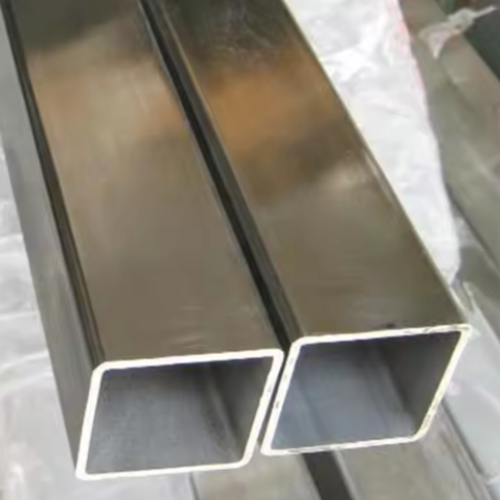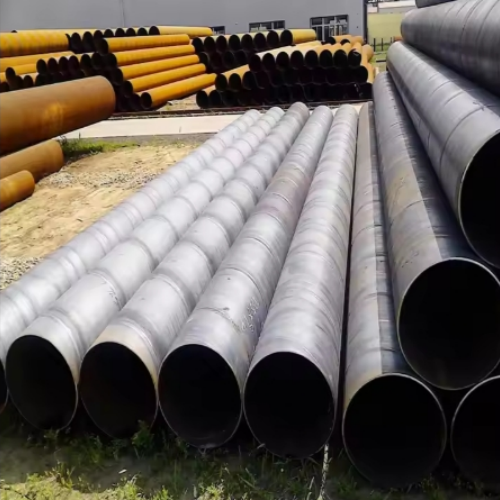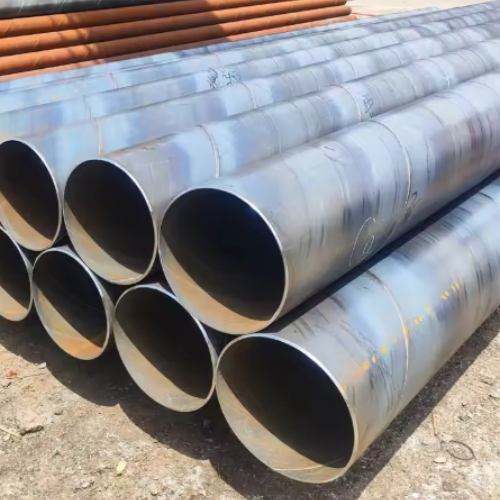GB-standard hot-dip galvanized spiral steel pipes - Corrosion-resistant and durable, the top choice for construction, bridge, and water conservancy projects.
Category:
Summary description:
Keywords:
Details
In the ever-evolving realm of modern industrial infrastructure, large-diameter hot-dip galvanized spiral steel pipes have emerged as a linchpin, particularly in industrial ventilation and water transmission systems. Celebrated for their extended service life, these pipes not only ensure seamless and efficient operations but also bring about substantial long-term cost savings, making them an invaluable asset across various sectors.
The structural integrity of large-diameter hot-dip galvanized spiral steel pipes is a key factor contributing to their widespread adoption in industrial ventilation. The expansive diameter of these pipes allows for the efficient conveyance of a significantly larger volume of air, a critical requirement in vast industrial setups like automotive manufacturing plants, steel mills, and large - scale logistics centers. In automotive factories, for example, during the painting and assembly processes, a multitude of volatile organic compounds (VOCs) and dust particles are generated. The large-diameter pipes can rapidly draw in and exhaust these pollutants, maintaining a clean and safe working environment. The unique spiral welding technique employed in production plays a pivotal role in enhancing structural strength. This method results in a homogenous and robust structure, distributing mechanical stress uniformly throughout the pipe wall. As a result, the pipes can endure the fluctuating pressures and constant mechanical vibrations inherent in ventilation systems without succumbing to deformation or failure. In power plants, where ventilation systems operate continuously under high - temperature and high-humidity conditions, these pipes remain resilient, ensuring the stable operation of the plant's critical systems.
When it comes to water transmission, large-diameter hot-dip galvanized spiral steel pipes truly distinguish themselves. Water, during its journey through pipelines, encounters diverse substances and environmental challenges. In agricultural irrigation projects, for instance, water may contain sediment, fertilizers, and other chemicals that can corrode pipes over time. In urban water supply networks, the water is treated with chlorine and other disinfectants, which can also pose a threat to the pipe material. The hot-dip galvanization process acts as a safeguard against these corrosive factors. When the steel pipes are immersed in a molten zinc bath, a complex metallurgical reaction occurs, forming a multi-layered protective coating. The outermost zinc layer serves as a physical barrier, shielding the steel from direct contact with water, oxygen, and other corrosive agents. What's more, the zinc coating offers sacrificial protection. Even if the coating is damaged due to external forces during installation or operation, the zinc will corrode first, sacrificing itself to protect the underlying steel. This self - healing property significantly extends the lifespan of the pipes. In long - distance water transfer projects, such as the South - North Water Diversion Project in China, these pipes have been proven to operate reliably for decades, ensuring a stable water supply to millions of people while minimizing the need for frequent replacements and maintenance, thus saving substantial costs.
The manufacturing of large-diameter hot-dip galvanized spiral steel pipes is a highly precise and tightly controlled process. State-of-the-art production equipment is utilized to ensure accurate pipe forming and high-quality welding. Advanced CNC machines are employed to control the spiral welding process with extreme precision, guaranteeing consistent weld quality. After the pipes are formed, they undergo a comprehensive battery of inspections. Non-destructive testing methods, such as ultrasonic testing and radiographic testing, are used to detect any internal defects that may not be visible to the naked eye. Dimensional measurements are carried out meticulously to ensure that the pipes meet the strict design specifications. Coating thickness testing is also conducted to verify the effectiveness of the galvanization process. These rigorous quality control measures ensure that each pipe that leaves the factory meets the highest performance standards required for industrial ventilation and water transmission applications.
Beyond their durability, large-diameter hot-dip galvanized spiral steel pipes offer significant installation benefits. Their large size reduces the number of joints needed in a pipeline system. Fewer joints mean fewer potential leakage points, enhancing the overall reliability of the system. Additionally, the smooth internal surface of the pipes reduces fluid resistance, facilitating the unobstructed flow of air or water. This not only improves the operational efficiency of the system but also reduces energy consumption. In a large - scale water treatment plant, for example, the reduced friction within the pipes allows pumps to operate more efficiently, resulting in lower electricity bills.
In conclusion, large-diameter hot-dip galvanized spiral steel pipes stand as an ideal choice for industrial ventilation and water transmission pipelines, thanks to their remarkable service life, robust structural strength, and excellent corrosion resistance. As industries continue to expand and infrastructure demands become more exacting, the significance of these high - quality pipes will only grow. Their ability to deliver reliable and long - lasting performance makes them a strategic investment that pays dividends in terms of enhanced operational efficiency, improved safety, and substantial cost savings, firmly establishing them as a cornerstone of modern industrial infrastructure.
More Products
Message

All Rights Reserved Copyright © RIZHAO STEEL HOLDING GROUP CO.,LTD. SEO 【Business license】
All Rights Reserved Copyright © RIZHAO STEEL HOLDING GROUP CO.,LTD.



















